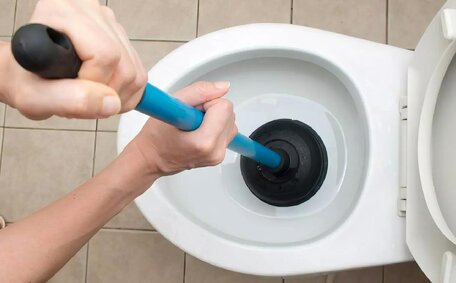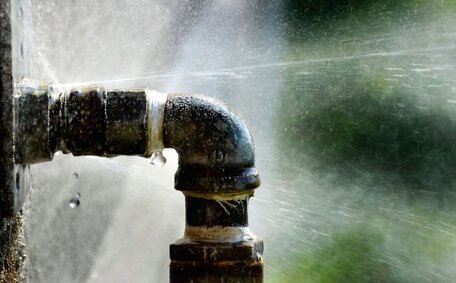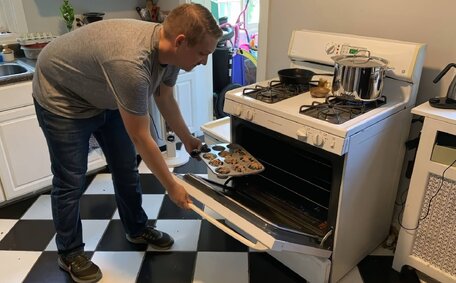Common Causes of Gas Water Heater Failures
There are several common issues that can cause a gas water heater to stop working properly or fail altogether:
- Faulty heater pilot light - A pilot light that goes out interrupts the hot water process by preventing the burner from igniting. Drafts or sediment build-up can extinguish a pilot light.
- Thermocouple problems - The thermocouple sends a signal to the gas valve when the pilot light is lit to keep the gas flowing. A malfunctioning thermocouple can prevent the pilot light from heating the system.
- Gas valve defects - Gas valve issues, including corrosion or debris, can impede gas flow and raise leakage concerns.
- Sediment buildup in the supply water heater tank burners - Mineral accumulation from water can lead to a significant drop in water pressure, impairing function and restricting gas flow.
- Flue blockages - Blocked ventilation lines and exhaust flues can inhibit the correct draft necessary to expel gases.
- For suspected burner malfunctions, enlist a plumber to swap out debris-clogged burners for consistent hot water delivery.
- Water or gas leaks in the tank present severe risks and necessitate prompt investigation to prevent hazards.
Identifying these most common sources of issues and taking swift action can help avoid complete failure of your hot water heater.
Faulty or Damaged Heating Elements
Heating elements are crucial in both gas and electric hot water systems. Electric current from the power supply heats the water by passing through these heating elements. Over time, with mineral buildup and corrosion, the electric hot water heater elements can lose their efficiency or stop working entirely.
If the heating elements are not heating properly, This can result in no hot water when you turn on the tap, causing discomfort due to fluctuating temperatures. You might encounter temperatures that are either scalding or insufficiently warm.
Insights from industry research suggest water heater problems with heating elements, which might need replace, account for a significant portion of troubles. A professional plumber can often fix a faulty heating element with a straightforward replacement, essential for producing hot water and restoring normal operation.
Pilot Light Malfunctions
Check pilot light functionality as it is a small yet powerful flame that ignites the water heater gas burner, heating the water flow to your taps. It works in conjunction with a thermocouple, which senses the pilot flame and signals the gas valve to open, allowing gas to flow to the burner.
An extinguished pilot light may suggest the thermocouple is no longer sending the necessary signal for gas delivery to the burner. Common causes can also include a faulty pilot light:
- Strong drafts or wind blowing out the flame
- Sediment buildup on the pilot assembly parts like the thermocouple or ignitor
- A defective thermocouple not able to hold the signal
- Issues with the ignition electrode sparking
The steps to reignite the gas electric pilot light to resume hot water delivery include:
- Locate the circuit breaker, pilot assembly, and ignitor button to check for any starting issues
- Switching the gas valve to pilot position
- Pressing the ignitor several times to ignite flame
- Holding the button for a few minutes to see if the ignition is successful
- Releasing the button and checking if pilot stays lit
- Then switching valve back to “on”
If the troubleshooting process doesn’t rectify the issue or the pilot light fails to stay lit, you’ll need the assistance of a professional. An unstable pilot can lead to dangerous issues that prevent your hot water working correctly or lead to carbon monoxide leaks. Proper cleaning, assembly repairs or full replacement may be needed to restore safe function.
Improper Installation
Incorrect installation is often an overlooked cause of early water heater breakdowns or malfunctions. Inaccurate placement, incorrect sizing, and faulty wiring in relation to your storage tank can cause operational issues.
Examples include:
- An undersized heater for your household can overwork and may fail to meet your hot water needs.
- Incorrectly sized expansion tanks may cause hazardous pressure buildups in addition to discomfort.
- Positioning in a spot without sufficient ventilation inside your house can lead to hazardous carbon monoxide emissions.
- Failing to install drip pans or condensation lines can result in leaks where water can cause internal rust.
- Inadequate clearance between walls, ceilings and vents poses fire hazards and risks for leaking water.
Understanding how minor deviations from installation specifications can void warranties and compromise safety is essential. Using unqualified personnel or attempting to DIY gas water heater replacement may seem cost-effective initially, but often results in functionality issues, leaks or even explosion dangers down the road.
Always rely on licenced professional plumbers following manufacturer instructions carefully to install hot water systems properly for maximum efficiency and safety.
Initial Troubleshooting Tips for Homeowners
Before contacting the utility company, homeowners can perform some basic troubleshooting to diagnose their hot water system issues:
- Check that your pilot light is lit - Locate the small pilot flame inside the main burner chamber. If it’s gone out, follow the manufacturer’s instructions to safely relight it, and should trouble persist, you’ll need to seek professional help.
- Verify that the service panel shows an open gas line - Confirm that the shut-off valve feeding the water heater is turned on fully to allow gas flow. This is often near the unit itself or your main gas metre.
- Inspect the temperature pressure relief valve - Lift the lever and check if hot cold water flows out as expected. This confirms it is not blocked and can release expanding hot or cold water properly.
- Reset the thermostat set - Turn off power, remove access panel, and reset the thermostat dial 5-10 degrees higher to get your hot water at the desired temperature. Turn power back on to see if the heater fires up.
- Check for leaks - Use a flashlight to look for any water on the floor or dripping from fittings. Sniff near the base or look out for a water leak evident by unexpected moisture or pooled water.
If these steps do not solve the problem, don’t hesitate to call your local licensed plumber immediately. Continuing to use a malfunctioning unit can interrupt your hot water supply and be extremely hazardous.
When Professional Help is Needed
There are certain situations when it’s necessary to call in a professional plumber to service your gas hot water system:
- You smell gas near the unit, indicating a dangerous leak, prompting an immediate response to shut off water and gas supply. Shut off the gas immediately and evacuate the area until a technician arrives.
- The pilot light cannot be relit after multiple attempts following the manufacturer’s instructions.
- The water pressure relief valve is dripping non-stop, unable to properly contain heat expansion pressures.
- There are signs of rust flakes, mineral deposits or water pooling below the tank pointing to internal corrosion issues or leaks.
- Varying tap water temperatures or disconcerting noises from the unit can arise from underlying mechanical problems.
- Without expertise in gas electric systems, improper handling may lead to the risk of explosions or electrocution.
The specialists at Brighton-Le-Sands Plumbing have over a decade of experience in maintaining and repairing all types of gas water heaters. Call us at 1300 349 338 or email for prompt, reliable service when your water heater requires professional attention.
Ensuring Safety with Gas Water Heater Issues
When dealing with a malfunctioning gas water heater, safety should always be the top concern. Gas leaks, faulty components leading to fire risks, and potential carbon monoxide poisoning are extremely hazardous situations.
Ensure your unit is installed in a well-ventilated area away from bedrooms or occupied rooms. Annual seal, fitting, and exhaust flue inspections by a technician should confirm secure connections. Consider upgrading older heaters lacking modern safety mechanisms like flame failure detection, auto gas shutoffs and CO monitors.
Operationally, inspect the manual pressure relief valve biannually. Watch for rust flakes or water leaks signalling corrosion. If you detect gas smells or the pilot light repeatedly goes out, address issues immediately rather than continuing to relight it.
Technological improvements allow newer tankless water heaters to self-diagnose errors, but periodic professional maintenance is still essential across all systems. Never hesitate to let our team at Brighton-Le-Sands Plumbing tackle confronting complex mechanical issues. Prioritising safety and proper repairs will maximise efficiency plus warranty protections.
Preventative Maintenance for Gas Water Heaters
Regular preventative maintenance is essential for reducing water heater problems and ensuring safe, efficient operation over the long term. Professional inspections and minor homeowner upkeep can help water heaters meet common hot water needs efficiently.
Professional Servicing
An annual tune-up by your plumber is highly recommended for your water heater’s maintenance. They will:
- Inspect gas fittings and lines for leaks, and assess the anode rod’s condition
- Inspect the burner assembly and clear any debris
- Clean sediment buildup from internal components
- Evaluate all safety controls like flame sensors and CO monitors
- Utilise the drain valve to Flush your tank to prevent mineral deposits
- Test temperature pressure and thermal expansion measures
- Verify proper ventilation for exhaust gases
Such professional upkeep optimises performance, prevents breakdowns, and safeguards operation.
DIY Maintenance Tasks
Beyond professional tune-ups, homeowners can perform regular maintenance checks including:
- Check your thermostat and the pressure relief valve - Check your pressure relief valve by opening the lever briefly to allow a small water flow, confirming it is not blocked by mineral deposits.
- Inspect gas supply lines - Sniff near supply line connections and fittings to detect any possible gas leaks.
- Monitor water temperature - Track fluctuations on a log to identify if heating elements or thermostats need adjustment.
- Clear debris from burner - Carefully use a vacuum to clean out your water heater’s pilot and burner from dirt, spider webs or lint.
- Change anode rods - Anode rods should be replaced roughly every 3 to 5 years to hinder tank corrosion.
Executing preventative maintenance aligns with hot water demands, prolongs the water heater’s lifespan, and leads to cost savings.






